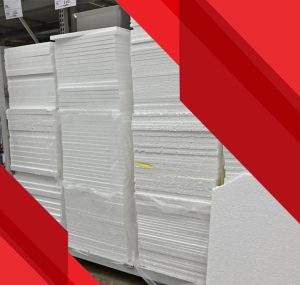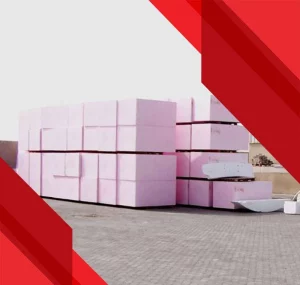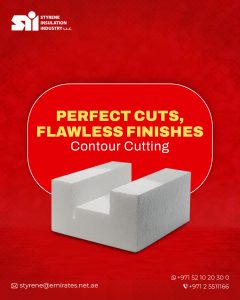In the UAE, where the sun doesn’t joke around and the temperature can turn a perfectly good fish into a science experiment in hours, anyone who moves food, medicine, or anything perishable knows the struggle is real. From Fujairah’s fishermen racing their catch to Dubai’s hotels to Abu Dhabi’s pharmacies rushing vaccines across the desert, one thing is clear: you need something that keeps things cold without drama. Enter the humble ice box, specifically Polystyrene Foam Boxes & EPS Boxes: Insulation Solutions from Styrene Insulation Industry.
As a trusted name among Polystyrene Manufacturers and Suppliers, they’ve turned simple polystyrene products made from Expanded Polystyrene Sheets into absolute lifesavers for businesses across the Emirates. This blog spills the real talk on why these boxes are a total game-changer for storage and transport in the UAE’s crazy heat.
Why the UAE Can’t Live Without a Proper Ice Box
Let’s be honest: the UAE summer is basically a giant oven. Step outside and your sunglasses fog up, your phone begs for mercy, and anything cold melts faster than ice cream on a Dubai sidewalk. That’s why a solid ice box isn’t a luxury; it’s survival gear. Fishermen in Umm Al Quwain, caterers in Jumeirah, and even small grocers in Al Ain swear by Polystyrene Foam Boxes & EPS Boxes: Insulation Solutions because they actually work when the mercury hits 50°C. These boxes aren’t just containers; they’re portable fridges that don’t need electricity and laugh in the face of desert heat.
1. How Long Can an Ice Box Keep Food Cold?
This is the question everyone asks the second they slap some ice packs inside. In the UAE’s brutal climate, a good ice box made from proper EPS foam can keep food below 5°C for 24–72 hours, sometimes longer if you pack it smart. A Fujairah fisherman told me he regularly keeps hammour and sherry on ice for two full days using Styrene’s boxes, no spoilage, no complaints. Add dry ice or gel packs and you’re looking at 4–5 days easy. Real-world test? A Sharjah catering company hauled biryani and chilled salads to a desert camp, four hours in 48°C heat—and everything arrived cold enough to serve straight away. That’s the kind of reliability businesses live for.
2. What’s the Difference Between an Ice Box and a Cooler?
People throw the words around like they’re the same thing, but they’re not. A regular plastic cooler, the kind you see at Carrefour with the blue lid, is usually made of injected plastic with a thin layer of PU foam. Looks nice, feels heavy, costs a fortune, and after two seasons, the hinges break and the insulation collapses. An ice box made from Polystyrene Foam Boxes & EPS Boxes: Insulation Solutions is different: lighter, cheaper, thicker walls (30–50 mm of pure EPS), and way better insulation.
3. Are EPS Ice Boxes Better Than Plastic Coolers?
Short answer: yes, and it’s not even close. Here’s the street-level comparison UAE businesses care about:
- Weight: A 50-liter plastic cooler weighs 12–15 kilos empty. Same size EPS box? Barely 2 kilos. That’s fuel savings on every truck from Jebel Ali.
- Insulation: EPS walls are thicker and full of trapped air—real insulation. Most plastic coolers have thin foam that compresses over time.
- Price: A decent plastic cooler costs 400–800 AED. A Styrene EPS box of the same capacity? 80–150 AED. Do the math on a fleet of 50 boxes.
- Durability for business: Plastic coolers crack, hinges snap, lids warp. EPS boxes take a beating, get stacked ten high, and keep going for years.
- Repair: Crack a plastic cooler? Game over. Dent an EPS box? Still works fine.
4. How to Choose the Right Size Ice Box for Your Needs?
Picking the wrong size is the fastest way to waste money and spoil goods. Here’s the no-nonsense UAE guide:
- 5–15 liters: Perfect for small medical deliveries, vaccine transport, or a family picnic in Saadiyat.
- 20–40 liters: The sweet spot for most restaurants, small caterers, and daily fish runs from Dibba to Dubai.
- 50–100 liters: Built for serious players—hotels, large caterers, export companies moving 30–80 kilos at a time.
- 100+ liters: The big boys used by cold-chain logistics companies shifting pallets of meat or seafood from Jebel Ali.
5. Can You Use Ice Boxes for Medical or Pharmaceutical Transport?
100%. In fact, hospitals and pharmacies across Abu Dhabi and Dubai trust Polystyrene Foam Boxes & EPS Boxes: Insulation Solutions for vaccine transport, blood samples, and temperature-sensitive medicines. The EPS foam keeps 2–8°C for up to 72 hours with the right gel packs, and the boxes are easy to sterilize between uses. During the pandemic, Styrene supplied thousands of these boxes to clinics moving vaccines from warehouses to remote areas in Al Ain and Liwa, zero temperature excursions reported. If it’s good enough for life-saving vaccines, it’s definitely good enough for your weekend barbecue.
Extra Benefits That Make Businesses Smile
Beyond keeping things cold, these boxes bring extras that add up fast:
- Stackable like Lego bricks—maximizes truck space.
- Zero electricity bills—no compressor, no drama.
- Custom printing available—slap your logo on for that pro look.
- Recyclable—big tick for companies chasing Dubai’s green certifications.
- Crazy light—drivers don’t throw their backs out loading trucks.
FAQs About Ice Boxes
1. Can I Use an Ice Box for Long-Distance Food Transport?
Absolutely. With proper ice packs or dry ice, businesses regularly move seafood from Fujairah to Riyadh—36+ hours—and everything arrives fresh.
2. Are Ice Boxes Safe for Storing Seafood and Meat?
Yes, and they’re the industry standard. The smooth inner surface wipes clean, and the insulation keeps bacterial growth in check by staying below 5°C.
3. What Is the Ideal Thickness for Insulation in an Ice Box?
For UAE conditions, 40–50 mm walls are the gold standard. Anything thinner struggles after noon. Styrene’s standard boxes hit this sweet spot.
4. Can I Store Fruits and Vegetables in an Ice Box?
Yes, but keep them above 0°C to avoid chilling injury. Most veggies love 4–10°C, which these boxes handle easily with minimal ice.
5. Is It Possible to Reuse EPS Ice Boxes Multiple Times?
Of course, most businesses get 3–5 years of daily use. Just clean them properly and store them out of direct sunlight when not in use.
Why Styrene Insulation Industry Is the Smart Choice
Styrene Insulation Industry isn’t just another factory churning out foam—they get the UAE. Boxes are made right here, delivery is 48 hours anywhere from Dubai to Al Ain, and their team actually answers the phone when you call. Fishermen, hotels, pharmacies, and exporters keep coming back because the boxes work, the prices make sense, and the service is proper Emirati hospitality.
The Future Is Cold (and Lightweight)
With UAE’s food import-export scene exploding and medical logistics growing faster than a Palm Jumeirah villa, the demand for reliable, affordable cold solutions is only going up. Polystyrene Foam Boxes & EPS Boxes: Insulation Solutions are ready—lighter, greener versions are already in testing, and custom medical-grade boxes are rolling out. Whatever tomorrow throws at the UAE, one thing’s clear: businesses will still need something that keeps things cold without fuss. And Styrene will still be there with the box that does exactly that.
Keep It Cold, Keep It Simple
In a country that runs on fresh fish, five-star catering, and life-saving medicine, a proper ice box isn’t optional, it’s the difference between profit and disaster. Grab the right Polystyrene Foam Boxes & EPS Boxes: Insulation Solutions from Styrene Insulation Industry, pack them smart, and watch your goods stay cold while your stress melts away. Because in the UAE heat, cold is the ultimate luxury, and these boxes deliver it every single time.







